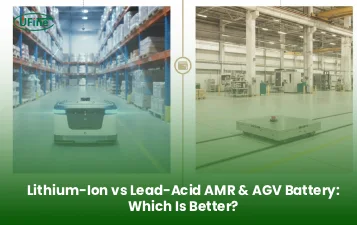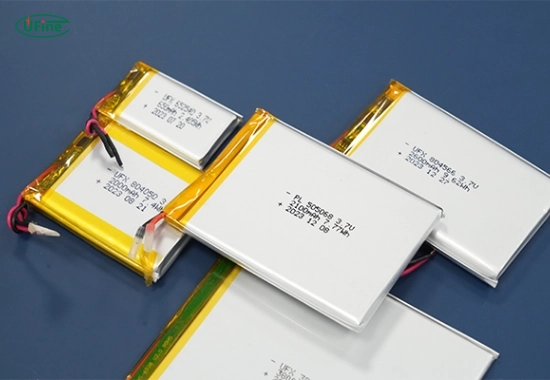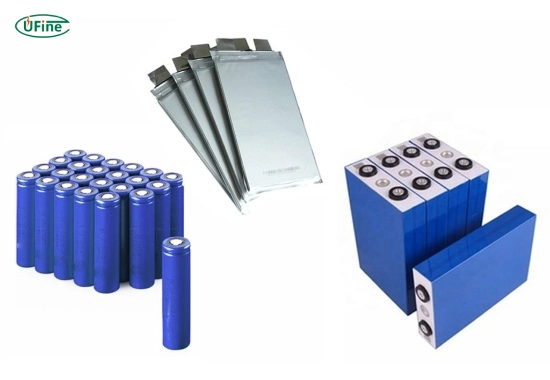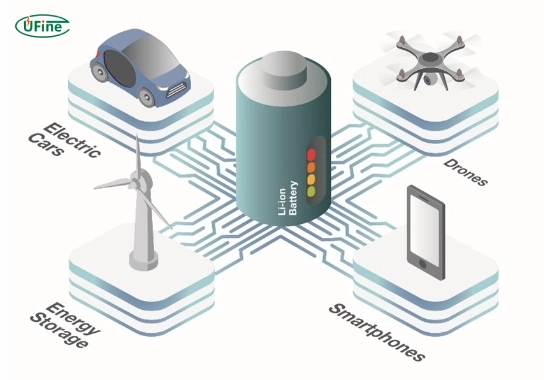
Lithium battery cells are the backbone of modern devices and technologies. From powering electric cars to running your smartphone or storing renewable energy, these batteries play a vital role in our daily lives. However, not all lithium battery cells are created equal. High-quality lithium battery cells are essential to ensure safety, long-lasting performance, and overall product reliability.
This article will explore the top 5 benefits of choosing high-quality lithium battery cells. Whether you’re a business owner, a manufacturer, or someone interested in battery technology, this guide will help you make better decisions.
Part 1. What are lithium battery cells?
Lithium batteries are rechargeable batteries that store and release energy. When charged, lithium ions move from the positive to the negative electrode. When discharged, they flow back, creating the energy needed to power devices.
These batteries are popular because they are lightweight, store more energy in a small size, and have a longer life than traditional batteries like lead-acid or nickel-cadmium. Their efficiency and versatility make them the top choice for products like laptops, electric vehicles, power tools, and solar storage systems.
Part 2. Why does quality matter in lithium battery cells?
The quality of a lithium battery cell directly affects its performance, safety, and lifespan. Low-quality batteries may cause serious issues such as overheating, faster degradation, or dangerous accidents like fires or explosions.
On the other hand, high-quality lithium battery cells ensure:
- Stable performance over time.
- Safety features to prevent overheating or short circuits.
- Longer lifespan, reducing the need for replacements.
When you choose high-quality cells, you’re not just paying for better performance—you’re investing in the safety and satisfaction of end-users.
Part 3. Top 5 benefits of choosing high-quality lithium battery cells
1. Longer lifespan
High-quality lithium battery cells are designed to last. Compared to cheaper alternatives, they can handle more charge and discharge cycles. A premium lithium battery can last up to 2,000–5,000 cycles. In comparison, low-quality batteries may degrade after just a few hundred cycles.
For example, a product using a high-quality battery will remain functional for years without frequent replacements. This saves money in the long run and improves the product’s reputation.
2. Improved energy efficiency
Energy efficiency is one of the most important factors in batteries. High-quality lithium battery cells can store and deliver energy with minimal losses. This ensures that more stored energy is used, leading to better performance.
For instance:
- An electric vehicle with efficient batteries will have a longer driving range.
- A solar energy system with high-quality batteries will store more electricity and provide reliable power during outages.
- Efficiency means your devices will work better and longer with each charge.
3. Enhanced safety
Safety is a major concern when it comes to batteries. Poor-quality cells are more likely to overheat, catch fire, or explode due to improper manufacturing or lack of safety features.
High-quality lithium battery cells are equipped with:
- Overcharge protection to prevent excessive voltage.
- Thermal management systems to avoid overheating.
- Short circuit protection to stop dangerous current flows.
These safety features ensure the battery operates smoothly under normal and extreme conditions, providing peace of mind to manufacturers and users.
4. Consistent performance in extreme conditions
Not all batteries are built to handle harsh environments. Low-quality lithium battery cells may fail in extreme temperatures or under heavy loads.
In contrast, high-quality lithium battery cells are engineered to maintain their performance, even in:
- High temperatures during summer.
- Cold during winter.
This makes them ideal for outdoor equipment, electric vehicles, and industrial tools, where reliability is critical.
5. Environmentally friendly and sustainable
Using high-quality lithium battery cells can also help the environment. Premium batteries last longer, meaning fewer batteries end up in landfills. Many leading manufacturers of high-quality batteries also follow sustainable production practices, reducing the environmental impact.
You’re improving your products by choosing better batteries and contributing to a cleaner and greener planet.
Part 4. How to identify high-quality lithium battery cells?
Is a battery high-quality? Here are a few things to look for:
- Brand reputation: Stick to trusted brands that specialize in lithium battery technology.
- Certifications: Check for certifications like UL, CE, or RoHS, which indicate the battery meets international safety standards.
- Cycle life: A good lithium battery should have a high cycle life, usually between 2,000 and 5,000 cycles.
- Safety features: Ensure the battery has protections for overcharging, overheating, and short circuits.
- Customer reviews: Read feedback from other users to confirm the battery’s performance in real-world use.
Part 5. Applications of high-quality lithium battery cells
1. Consumer electronics
Devices like smartphones, laptops, and tablets depend on lithium batteries for portability and long-lasting usage. High-quality batteries ensure better performance and longer runtimes.
2. Electric vehicles (EVs)
EVs rely heavily on lithium batteries for power. Premium cells provide a more extended driving range, faster charging times, and better safety, making them essential for the success of electric cars.
3. Renewable energy storage
Solar panels and wind turbines often store energy in lithium batteries. High-quality cells ensure the energy is stored efficiently and can provide reliable backup power during peak demand or outages.
4. Medical devices
Reliable, long-lasting batteries are essential for critical medical equipment, such as hearing aids or portable oxygen concentrators, to ensure patient safety and convenience.
5. Industrial tools and equipment
Power tools, drones, and robotics often operate in demanding environments where performance and durability are key. High-quality battery cells are a must for these applications.
Part 6. FAQs
-
What makes lithium battery cells better than traditional batteries?
Lithium battery cells are better because they are lightweight, have a higher energy density, and last longer than traditional batteries like lead-acid or nickel-cadmium. They also recharge faster and are more efficient. -
How long do high-quality lithium battery cells last?
High-quality lithium battery cells can last 5–10 years, depending on usage and care. They can handle thousands of charge and discharge cycles without significant capacity loss. -
Are lithium battery cells safe to use?
Lithium battery cells are safe with high-quality materials and include safety features like overcharge protection and thermal management. Always choose batteries from reputable manufacturers. -
Can lithium batteries be recycled?
Yes, lithium batteries can be recycled. Recycling facilities can recover valuable materials like lithium, cobalt, and nickel, reducing the environmental impact. -
How can I extend the life of my lithium battery?
To extend the life of your lithium battery, avoid overcharging or complete drainage, store it in a cool, dry place, use the recommended charger, and protect it from extreme temperatures.
Related Tags:
More Articles

Lithium-Ion vs Lead-Acid AMR & AGV Batteries Compared
Discover the pros and cons of lithium-ion and lead-acid AMR & AGV batteries. Learn about cost, lifespan, safety, and which is right for your fleet.
Robot Vacuum Battery Replacement: Easy Step-by-Step Guide
Learn how to replace a robot vacuum battery safely and easily. Step-by-step instructions, battery types, costs, and common mistakes to avoid.
Discover how to choose the right battery for your robot. Compare Li-ion, LiFePO₄, NiMH, and more for performance, safety, and cost.
Inside Humanoid Robot Battery Pack Design
A deep dive into humanoid robot battery pack design, covering battery life, voltage, capacity, safety, and real-world engineering trade-offs.
Humanoid Robot Battery Life: How Long Do They Really Last?
Most humanoid robots run 1.5–4 hours per charge. Learn real-world battery life, battery types, capacity limits, and future improvements.





